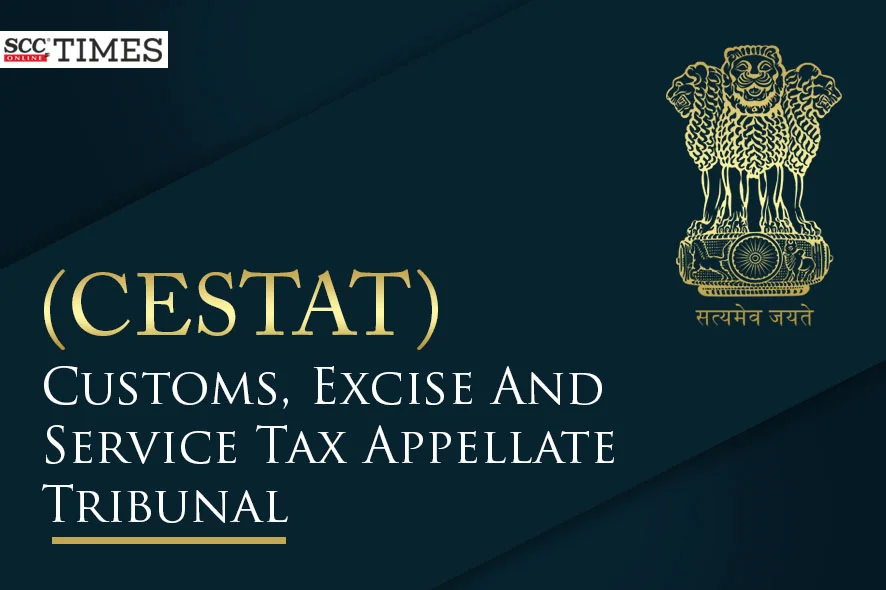Customs, Excise and Service Tax Appellate Tribunal, Bangalore: In an appeal filed against the order dated 07-02-2018, passed by the Commissioner of Central Tax, Bangalore, the Bench of D.M. Misra, Member (Judicial) and R. Bhagya Devi, Member (Technical) observed that the issue involved in the present appeal for consideration was whether the incentive of discounts declared for small/mid segment cars be allowed to luxury model cars i.e., Fortuner, Innova and Corolla attracting higher rate of duty. In other words, whether cross model utilisation of incentives/discounts were admissible. The Tribunal stated that the cross-model utilisation of discount was inadmissible to the appellant.
Regarding invoking larger period of limitation, the Tribunal stated that the appellant had been following the said mechanism of passing incentives/discount since 2008 and no objection had been raised by the department. Hence, there was no suppression or mis-declaration or mis-statement of facts on the part of the appellant. Consequently, the demand was barred by limitation. Thus, the Tribunal modified the impugned order and allowed the appeal on the ground of limitation only.
Background
Appellants were engaged in the manufacture of Multi Utility Vehicle (MUV) / passenger cars and parts. They manufactured various models of cars viz., Innova, Fortuner, Corolla, Etios Sedan, Etios Liva, Camry and Camry Hybrid and the effective rate of Central Excise Duty varied from one vehicle model to another. The Fortuner, Innova and Corolla models carried high rate of Central Excise duty in comparison to other models.
During audit of the records, it was observed that the appellant was passing on discounts under various sales incentive/promotion schemes circulated to its dealers from time to time. The discounts were extended for specific models. On an analysis of the discounts based on various models, it was observed that they had adopted discount methodology only for specific type of models viz., Etios, Liva, Innova and Camry hybrid models. Further, the assessable value of the vehicles was reduced by adjusting the discounts allowed by dealers on spare parts turnover sold to end-users based on the previous month turnover and for payment of service charges for various services such as after-sales warranty expenses.
It was alleged that the cross-model discount and adjustment of discounts provided to spare parts and service charges, against the value of vehicles attracting higher rate of duty were not informed to the department, hence, they had indulged in undervaluation of the goods. Consequently, a show-cause notice was issued to them on 11-4-2017 for recovery of short-payment of duty of Rs. 54,33,17,188 for the period April 2012 to June 2014 with interest and penalty. On adjudication, the demand was confirmed with interest and equal amount of penalty. Hence, the appellant filed the present appeal.
Analysis, Law, and Decision
The short issue involved in the present appeal for consideration was whether the incentive of discounts declared for small/mid segment cars be allowed to luxury model cars i.e., Fortuner, Innova and Corolla attracting higher rate of duty. In other words, whether cross model utilisation of incentives/discounts were admissible.
The Tribunal relied on Tata Motors Ltd. v. CCE, 2015 (328) ELT 321, wherein it was held that the discounts passed to the dealers did not satisfy the requirement of a trade discount to qualify for deduction, insofar as if the discount was declared for a particular model of car and the end-user was not receiving the discount. Therefore, the Tribunal stated that the cross-model utilisation of discount was inadmissible to the appellant.
Regarding invoking larger period of limitation, the Tribunal stated that the appellant had been following the said mechanism of passing incentives/discount since 2008 and no objection had been raised by the department. Hence, there was not any suppression or mis-declaration or mis-statement of facts on the part of the appellant. In absence of any suppression or mis-declaration of the facts larger period of limitation could not be invoked. Consequently, the demand was barred by limitation. Thus, the Tribunal modified the impugned order and allowed the appeal on the ground of limitation only.
[Toyota Kirloskar Motor (P) Ltd. v. Commr. of Central Tax, 2024 SCC OnLine CESTAT 733, decided on 26-07-2024]
Advocates who appeared in this case:
For the Appellant: Ravi Raghavan and Roshan, Advocates.
For the Respondent: H. Jayathirtha, Superintendent, Authorised Representative.






